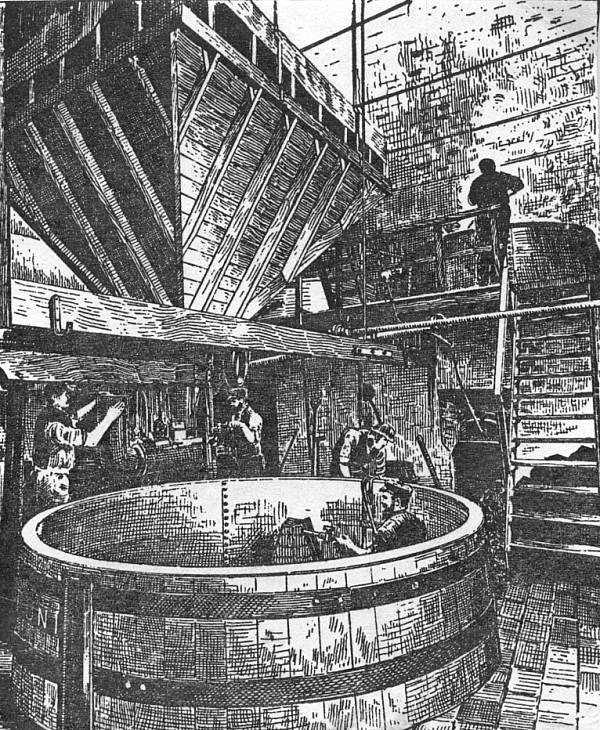

Like most cash-crops, hops are very vulnerable to visitudes in both weather and supply and demand which drive prices up or down like a yo-yo. But unlike other crops, say corn or barley for example, the growing region for hops is relatively small. In 2008, according to the American Organic Hop Growers Association, the Yakima Valley produced 30,595 acres of hops, comprising 75% of the U.S. commercial hop production. Compare Yakima to other agricultural regions like the Midwest or the San Joaquin Valley in CA and you get my point. On top of that, demand for Northwest hops has exploded in recent years with both the growth of the craft brewing market and the decision by major manufacturers (think Anheuser-Bucsh) to source their hops from here rather than, say, New Zealand or Germany.
The cycle goes like this: a couple consecutive bad weather seasons could decrease the supply of Yakima hops and drive up their price. Conversely, subsequent growing seasons could produce bumper crops of hops which would lower prices. These price fluctuations make it difficult for growers to plan their next year’s crop and for brewers to budget for their hops needs. On top of that, the vast majority of brewers enter into multi-year contracts for hops, requiring them to commit to a price that might be relatively high, compared to prices in subsequent years when supplies might increase and prices drop – bad for brewers, good for growers. But the opposite can happen: brewers can luck into a low price in a multi-year contract during which the price of hops might increase – bad for growers, good for brewers. You might remember that a few years ago, supplies of Yakima hops fell and prices spiked, a cycle that jacked up the price of beer production and, consequently, the price of beer.
Given this volatility, you can see why it would seem very risky for hops growers to go organic, despite increasing demand for all things organic. Indeed, in 2009, only about 100 acres in WA are producing organic hops. Without all the fertilizers and chemical pesticides, an acre of organic bines yields half as much as conventionally-grown hops. And if it’s a bad year, well, see above. So brewers might not believe that they can secure a reliable supply of organic hops – or specific varieties of organic hops like Simcoe, Citra, or Amarillo that brewers need for their specialty beers. And most growers, lacking confidence that devoting their land to vastly more labor-intensive organic hops will pay off, are wary of going organic.
That’s why we’re supporting the efforts of the American Organic Hop Growers Association to dedicate increasing resources for organic hop production. By buying and promoting their organic hops, we’re trying to generate a reliable market that their growers can depend on as they plan for future production cycles. Last week, Brad Carpenter and Ron Britt trucked in a load of FRESH, ORGANIC hops from Cowiche Canyon’s first-ever harvest. (That's Matt, Ron Britt, Ron's son Reed, and Brad Carpenter holding up fresh organic Simcoe hop cones.) You might have read the tweets we sent out as the guys here brewed their first batch of fresh-hopped beer. The aroma was amazingly distinct – super-concentrated, earthy yet floral, and100% hoppy. We look forward to tapping the first batch of Cowiche Canyon Fresh-Hopped Ale at the Yakima Fresh Hop Festival on October 2 – stay tuned for sneak previews!








